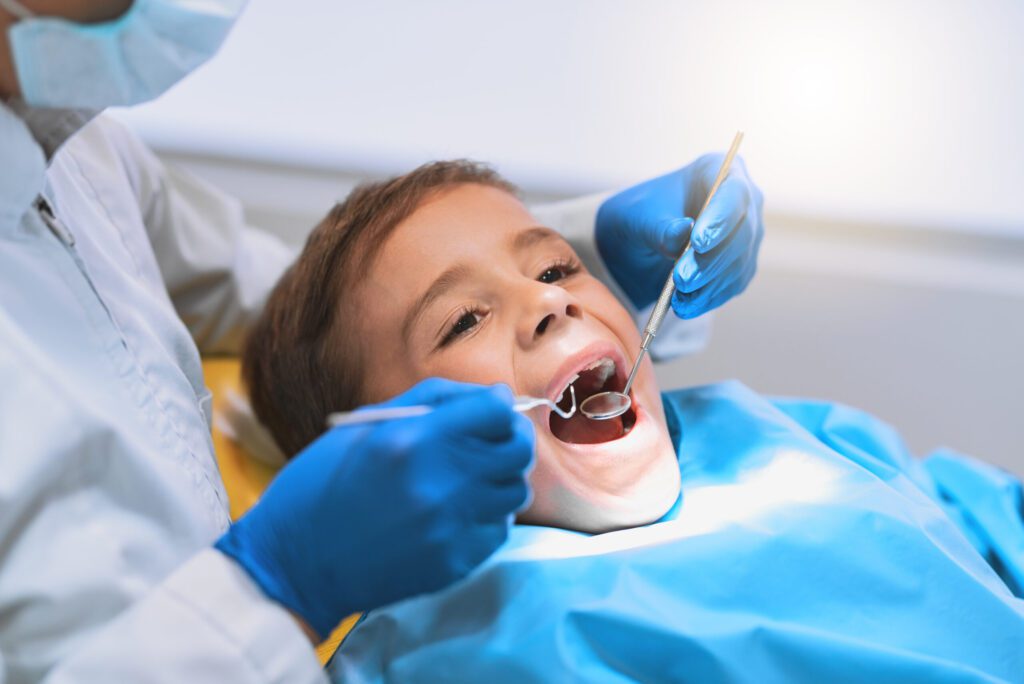by TERESA SCHIFFER
Sponsored by Central Florida Health Care
Good oral health begins early, with proper pediatric dental care. Although the importance of healthy baby teeth isn’t often talked about, the fact of the matter is that cavities and oral infections in children can lead to serious problems. Poor oral health may cause problems eating that result in stunted growth, and there is the possibility that infections in the mouth can spread to the brain. That’s why good oral hygiene, nutrition, and regular dental checkups are crucial for kids.
Unfortunately, there is so much sugar in our diets these days that it can be challenging to prevent cavities. Parents should monitor their children’s sugar intake and decrease it wherever possible. For example, many parents are aware of the detrimental effects of soft drinks on teeth but overlook the sugar content in fruit juices. Fruit is far more nutritious when consumed whole, and juices should be limited to just one or two cups per day.
“We recommend brushing twice a day — in the morning and before bed — and flossing at least once a day,” says Dr. Archana Antony, a general dentist who primarily treats children at Central Florida Health Care. Children should not use mouthwash until they are old enough to understand that it is not to be swallowed, usually by age 7 or 8. Warm salt water can be used as a rinse if a child has a painful tooth eruption.
Antony recommends that children visit their dentist every six months for cleaning and fluoride treatment, though an annual visit will suffice if they do not have any cavities. They should begin their visits as soon as they get their first teeth, or at age 1.
Central Florida Health Care provides all the basic dental services that a child will need, including regular cleanings, fluoride treatments, space maintainers, extractions, fillings for cavities, and stainless steel crowns if necessary. Although parents are welcome to join their children in the examination room, it is suggested that they allow their kids to go in on their own once they are old enough to do so, generally about age 4 or 5.
It is extremely rare for a child to have no cavities at all, and this is mainly due to the amount of sugar in their diet. However, if the parents have cavities, it is more likely that the child will have some as well, and this is due not just to diet, but also to the presence of certain bacteria in the mouth. As parents affectionately kiss their kids, they risk passing this bacteria on to the children.
“The bacteria that causes the cavity can be easily transferred to the child’s mouth,” Antony explains. “Then, on top of that, if the oral hygiene is not good and the diet is not good, then it’s a perfect environment being created for the bacteria to cause cavities.” This bacteria thrives on carbohydrates, so a diet laden with sugar and other carbs, such as those found in bread, pasta, and other grain products, is likely to result in cavities.
Patients at Central Florida Health Care are given a risk assessment test that helps to determine whether a child will be prone to cavities in their teeth. In addition, the dentists educate parents on the importance of proper oral hygiene and the actions that can help to ensure a happy, healthy smile.
